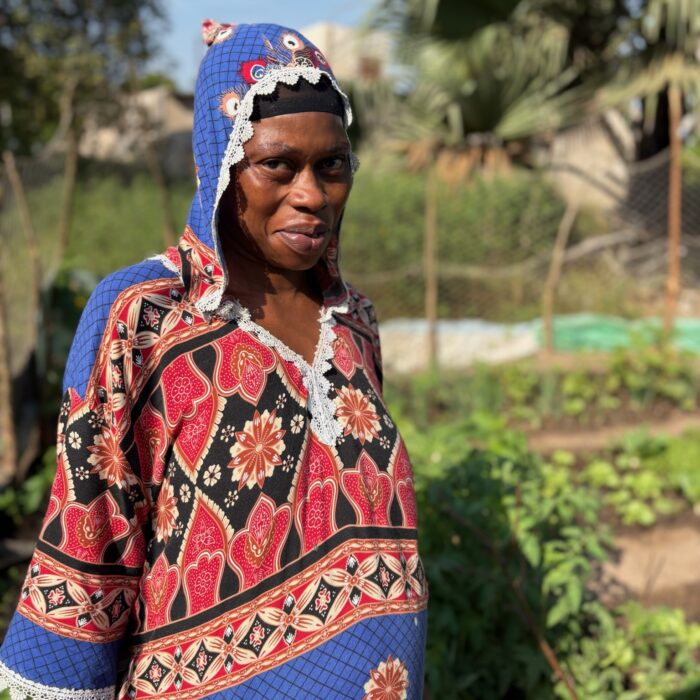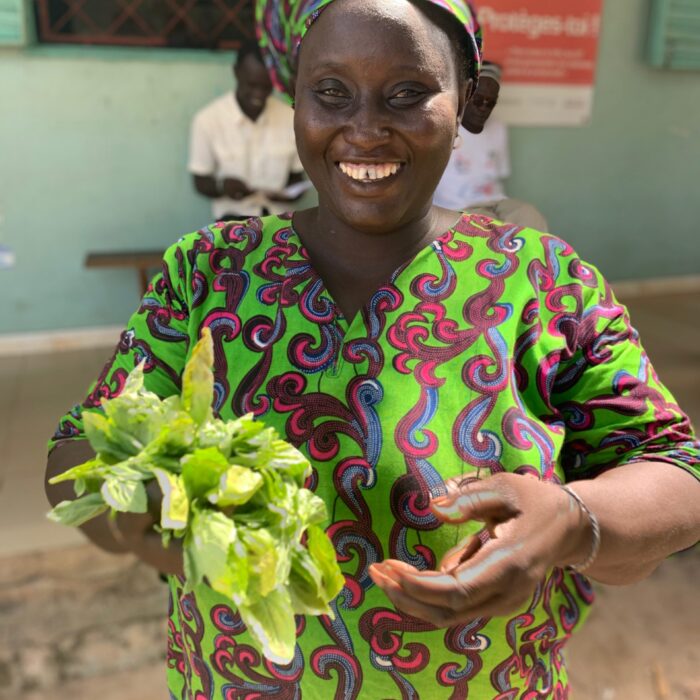Mitchell Anderson’s Marinated Kale Salad Recipe
January 8, 2025
January 8, 2025
January 8, 2025

When we plant gardens, we plant hope, resilience, and a reminder that while we can’t predict the future, we can nurture a world of abundance. Adji Diémé, who learned to cultivate a garden beside her home, shows us how small seeds, when cared for, can transform lives

Senegal holds a special place in DIG’s history—it’s where our first seeds of change were planted. Today, in the Casamance region, we’re working alongside young mothers, people living with HIV, and undernourished children to create healthier futures through our nutrition-sensitive agriculture programs. Stories like Adji’s, a mother who turned her life around by learning to grow fresh, nutritious food in challenging sandy soil, remind us of the resilience and potential within these communities. In Ziguinchor, where climate change and limited resources test farmers daily, DIG participants are defying the odds with flourishing gardens. Learn more about DIG in Senegal and see how you can help plant seeds.